Listeners’ Questions, Peter’s Answers Audio- March 22, 2012
[youtube class=”center” id=”q2wSo2ajQF0″]
[separator style_type=”single” top_margin=”5″ bottom_margin=”5″ sep_color=”” icon=”fa-play” width=”” class=”” id=””]
Robert from Toronto, ON
Recently, Barclay’s reported that the Fed has purchased 64% of all gross 8 to 10 yr T-bonds and 91% of all 20 to 30 yr T-bonds issued since operation Twist began. That’s disturbing news but this was not widely reported. What signs do we look for as to when to short the 10yr T bond?
Ming from Haslett, MI
I was in a debate with a friend who’s quite successful and has worked in the banking and finance industry for some time. He, as others have, argued that because of globalism, Ron Paul’s economic policies will not do much good to the poor. Can you explain to me how they can argue globalism as a reason to discredit Paul’s belief in gold standard, balancing the budget, deregulation, and zero income tax?
Matt from Jonesboro, AR
How does borrowing money from China create more money for the US to waste? Are the Chinese sending us shipments of yuans or is the US government trading the treasury notes for goods? In other words, how does China’s credit equate to actual government spending?
Ross from Lafayette, CA
So right now I own about 600 ozs of silver, 10 ozs of gold and a few thousand in cash as my savings. My long time goal is obviously precious metals when runaway inflation comes here in full form soon enough. Although I am thinking when Greece defaults there will be a temporary run to the dollar and treasuries. Do you think it’s worth it to cash out on the metals to avoid them getting hit again and then buy back in? Or do you think that timing will be too risky and I should just hold onto the metals.
Eduardo from San Diego, CA
I recently saw your discussion on TYT with Cenk Uyguy. There was a part in the interview where you said that today taxes are not lower than in the 1950’s and 1920’s. However Ronald Regan in 1986 lowered the top tax rate from 50% to 28%. Before 1986 taxes were in the 50-70% range. What I got from your point was that even though the tax percent was at 50% the payers were receiving money back or that they were finding loop holes to where they were paying less than 50%. Could you please explain to me your point in the taxes not being lower and the 1% should have less taxes because that is the only point you made in the interview that I did not really agree with?










